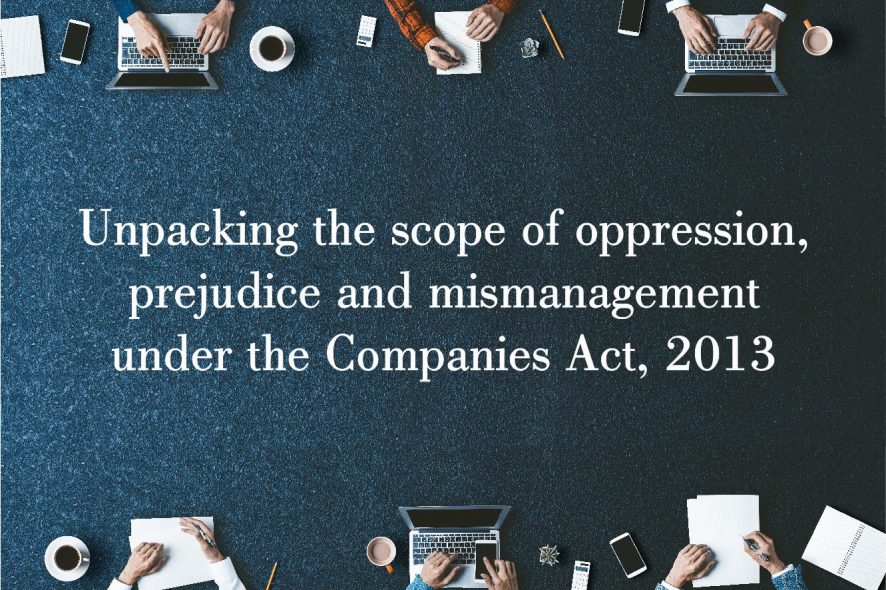Introduction
Much like sovereign democracy, corporate democracy plays to the will of the majority. The majority rule enforces a contractual bargain among shareholders that puts collective decision-making ahead of individual interests. By placing business decisions in the hands of the Board of Directors, it introduces an element of efficiency. However, what is to prevent a tyranny of the majority that steamrolls minority shareholders? Here, company law intervenes to moderate the behaviour of dominant shareholders to ensure they do not adversely affect the interests of the minority. Minority shareholders can resort to various remedies under company law, such as oppression, prejudice and mismanagement, to restore the balance of power.
While Indian company law has incorporated versions of shareholder remedies since the mid-20th century, the design of the remedies as they currently operate finds place in Sections 241 and 242 of the Companies Act, 2013 (“the 2013 Act”). No sooner than these provisions took effect,[1] they faced a litmus test in one of India’s fiercest corporate battles in recent times. On 24-10-2016, the Board of Tata Sons Ltd., the holding company of the revered Tata group of companies, ousted its Executive Chairman, Mr Cyrus Mistry, from the position. The Shapoorji Pallonji group, of which Mr Mistry is a part, is a minority shareholder in Tata Sons. The group promptly initiated action under Sections 241 and 242 of the 2013 Act against Tata Sons and its controlling shareholders, being two Tata trusts.
The Shapoorji Pallonji group challenged various decisions taken by Tata Sons. These included several business decisions taken in various Tata group companies (referred to as “legacy issues”), the amendments to the articles of association of the holding company Tata Sons to enhance the powers of the Tata shareholders and ultimately the removal of Mr Mistry as the Executive Chairman and thereafter as a Director of Tata Sons. While the dispute was pending adjudication, Tata Sons converted itself from a public company into a private one, a matter also contested legally. After marathon hearings, the Mumbai Bench of the National Company Law Tribunal (“NCLT”) issued a 368-page ruling[2] declining to grant any relief to the minority shareholders.
† Associate Professor, Faculty of Law, National University of Singapore. I would like to thank Souryaditya Sen for research assistance. Errors or omissions remain mine.
** This Article was first published in Supreme Court Cases. It has been reproduced with the kind permission of Eastern Book Company
[1] Ministry of Corporate Affairs, Government of India, Notification S.O. 1934(E) dated 1-6-2016 (being also the effective date).






